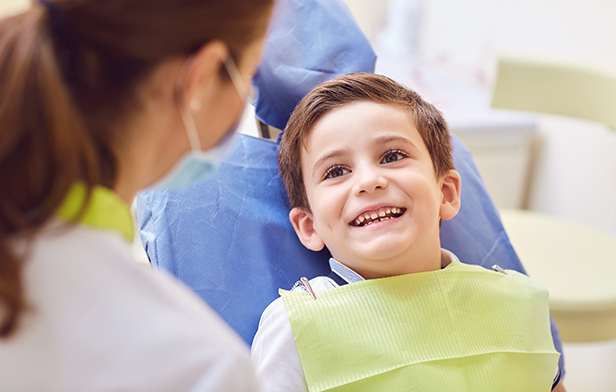Nighttime Brushing Followed By Insomnia?
Do you find that brushing your child’s teeth in the morning is surprisingly successful, particularly when compared with the nightmare of your nighttime routine? The good news is that you are doing your best to protect your little one’s smile with preventive care at home. The bad news is that you are probably becoming overwhelmed and frustrated if your previously sleepy child seems wide awake and ready for another day by the time his or her head hits the pillow. Don’t worry – we have some helpful tips that can make this time of day much easier to approach.
Nighttime Brushing Mishap
Perhaps you like to enjoy the evening with your little one, the house becomes dim, andthen it’s time to get ready for bed. Here’s what might happen: You walk into the bathroom, turn on the bright lights, brush and floss teeth, and the preventive care goes well. However, once you get your child into bed, he or she is simply not able to fall asleep or stay asleep. In some cases, this is just your child’s response to the bright lights of the bathroom that can have a significant effect on anyone’s brain – young or old. Sleep often becomes interrupted because the light signals one’s body to wake up, rather than sleep.
What To Do
Plan brushing and flossing at least 30 minutes after dinner (rinsing with water and then waiting at least a half hour is the safest method). However, make sure it’s still light out or that your home is well lit, and that your child has not begun to wind down for the evening when you begin your preventive care routine. This will ensure smiles are clean long before it’s sleepy time. Or, you might consider keeping nightlights in the bathroom. If you end up having a late night, you can see well enough to brush and floss and then ease your child toward bed without shocking his or her system with bright lights.
filed under: Preventive Treatments, Tips/Advice



